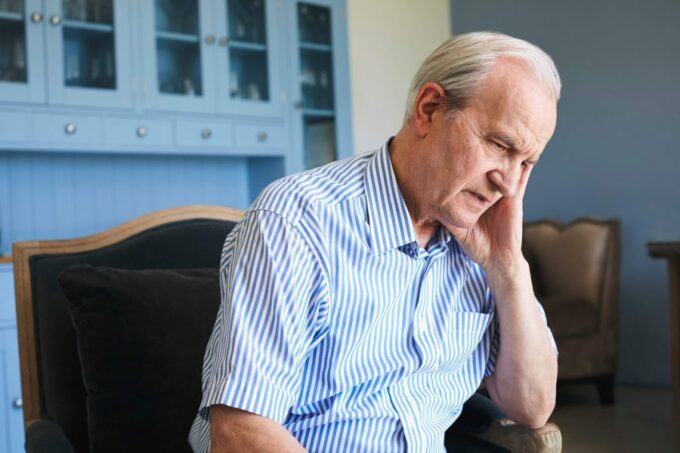As we age, staying healthy is so important, but it can also take more work than ever before. Older people tend to want to age in place and remain independent as long as they can, without the need for their families to take care of them. When you want to reduce your dependence on other people and remain empowered as you age, overall health is a big part of that.
Of course, some health conditions aren’t avoidable, but many are.
According to FreedomCare, older people need to make sure they’re regularly doing strengthening exercises for their back to make sure they stay comfortable when they’re sitting, standing, or walking.
Older people can also make smart nutrition decisions, and they shouldn’t neglect the importance of staying mentally healthy.
The following is a guide to healthy aging and what you need to know.
Aging and Health

Source: news.fiu.edu
As we age, it’s inevitably going to affect our health.
People are living longer, and most of us expect to live into our sixties and well beyond. By 2030, 1 in 6 people will be 60 or older in the world.
During our lifetimes, on a cellular level, our bodies do accumulate damage. This can reduce mental and physical capacity. The cellular damage that comes with aging can increase the risk of disease, but there’s a great deal of diversity in how people age and what they experience.
As cells age, they don’t function as well as they once did. Old cells also die, and this is a normal function. Sometimes old cells die because they’re programmed to do so. Programmed cell death is apoptosis, and it’s like cellular suicide. Aging cells is one trigger for apoptosis. Old cells need to die for new ones to have room.
Old cells also die because they can only divide a limited number of times. The limit is programmed by genes, and once a cell can no longer divide, it will get larger, exist for a period, and then die.
Damage to a cell directly can also cause its death. Cells can be damaged by harmful chemicals and substances and also by-products of their own activities. The by-products are called free radicals.
Cells aren’t the only part of your body naturally impacted by aging.
For example, older cells don’t function as well, and in some organs, cells die without being replaced. If the number of cells gets too low, organs can’t function normally. As we age, as a result, organ function declines.
Most organ and bodily functions peak just before the age of 30. Then, they start gradually but continuously declining.
While most of your functions stay adequate enough to support you, older people might be less able to handle intense physical activity or changes in their environment that create stress on their bodies.
Bones become less dense, and ligaments can become less elastic, leading to joints that feel stiff or tight.
As you get older, starting at around the age of 30, your muscle mass and strength will slowly decline. Some of this is because of reductions in physical activity, while lower levels of growth hormone and testosterone can also be part of the reduction in muscle mass.
By the time you’re 75, your percentage of body fat can double compared to what you had during your younger adulthood.
Common Health Conditions Related to Aging

Source: haymsalomonhome.com
Some of the health conditions that are the biggest concerns for seniors include:
- Cognitive decline: Some memory loss is considered a normal part of aging, but dementia and Alzheimer’s are not. You should learn to recognize early red flags and warning signs of Alzheimer’s because interventions can help slow its progression.
- Balance: Falls are the biggest cause of injury among older people. Actively working to maintain your sense of balance and overall mobility can help prevent falls.
- Heart disease: Cardiovascular diseases are the leading cause of death for people over the age of 65.
- Bone and joint problems: Around 54 million adults over the age of 50 have low bone mass or osteoporosis. Nearly all adults who are over the age of 80 have some level of osteoarthritis.
- Respiratory disease: Among older adults, asthma and chronic obstructive pulmonary disease (COPD) have become more common.
- Diabetes: An estimated 25% of adults who are 65 and older have type 2 diabetes. The sooner you recognize you could be at risk, the more quickly you can start to make lifestyle changes to manage blood sugar levels. Knowing what level of blood sugar is dangerous is vital for people with diabetes in order to stay healthy and prevent complications. Check out this blog from bensnaturalhealth.com to find out the signs and symptoms of dangerous blood sugar levels.
- Infections: Illnesses like pneumonia aren’t exclusive to seniors, but when you’re older because of a weakened immune system, it can be harder for you to deal with them.
- Cancer: The risk of certain types of cancer goes up as you age. For men, the risk of prostate goes up as you get older. For women, the risk for cancers like cervical and endometrial can go up with aging.
How to Embrace Healthy Aging

Source: aplaceformom.com
There are certain factors not in our control that affect how we age, like genetics. There are many more that are in our control.
General things that we know can contribute to healthy aging include:
- Exercising and getting plenty of physical activity. People who exercise often live longer, and they tend to have a better quality of life. The more you exercise, not only the more you might extend your life, but you could have increased years without disability or pain. In a study of adults 40 and older, taking 8,000 or more steps a day compared to only 4,000 steps was associated with a 51% lower risk of death from all causes. Exercise helps you maintain a healthy weight. Being overweight or obese increases the risk of many chronic illnesses, disabilities, and death.
- Eat healthy foods. Eating well helps you manage your weight, but there’s more to it than that. When you eat a diet high in fruits and vegetables, lean protein, and healthy fat, it can help your heart stay healthier and reduce your risk of cardiac-related death. A healthy diet can also help you stay more energetic, and it can boost your mental health.
- Get enough sleep. When you have plenty of high-quality sleep, you can stay alert during the day. When older people don’t get enough sleep, or they get low-quality sleep, research shows it affects their concentration and problem-solving abilities. There was also a study looking at data from almost 8,000 people that found people who got six hours of sleep or less a night were at a greater risk of developing dementia later in their lives. Poor sleep quality can worsen symptoms of depression in older adults, while good sleep is linked with lower levels of heart disease, insulin resistance, and obesity.
- Be mindful of the risks of alcohol use. Alcohol consumption and even dependence are on the rise among older adults in America. This is especially true for women. Heavy drinking over long periods of time can cause heart health issues and raise the risk of cognitive problems.
- Get medical care on a regular basis. A study from 2024 found that regular check-ups with your doctor can lower disease risk factors like high cholesterol and blood pressure. People who said they regularly went to the doctor reported improved feelings of wellness and a better quality of life.
- Your mental health matters as much as physical health. As we get older, there are a variety of factors that can make it harder to maintain social connections, leading to loneliness and isolation. When older people are isolated or experience loneliness, they’re at a higher risk of cognitive decline, heart disease, and depression. A study of thousands of adults 65 and older found loneliness was associated with more rapid cognitive decline.
- Find time for leisure activities and the things you enjoy because they’re good for your health. There are a lot of reasons for this. One reason is that you can increase your social interactions through the leisure activities you do. People who spend at least an hour engaged in hobbies have been found to have a lower dementia risk compared to those who spend less than 30 minutes a day on their hobbies.
- Take care of your cognitive health. Your cognition is how you think, learn and remember. Many of the things that we already mentioned above are also going to contribute to better cognitive health and a lower risk of something like Alzheimer’s. For example, try to exercise for at least 150 minutes a week. Don’t smoke or drink heavily. A Mediterranean-style diet is good for cognition, as is engaging in activities you find mentally stimulating.
The thought of growing older can be scary for some people, and there will be things that happen which you can’t control. Research also shows us at the same time that there are a lot of small, simple changes we can make daily in our lives with significant benefits for our health and longevity, as well as our quality of life.







